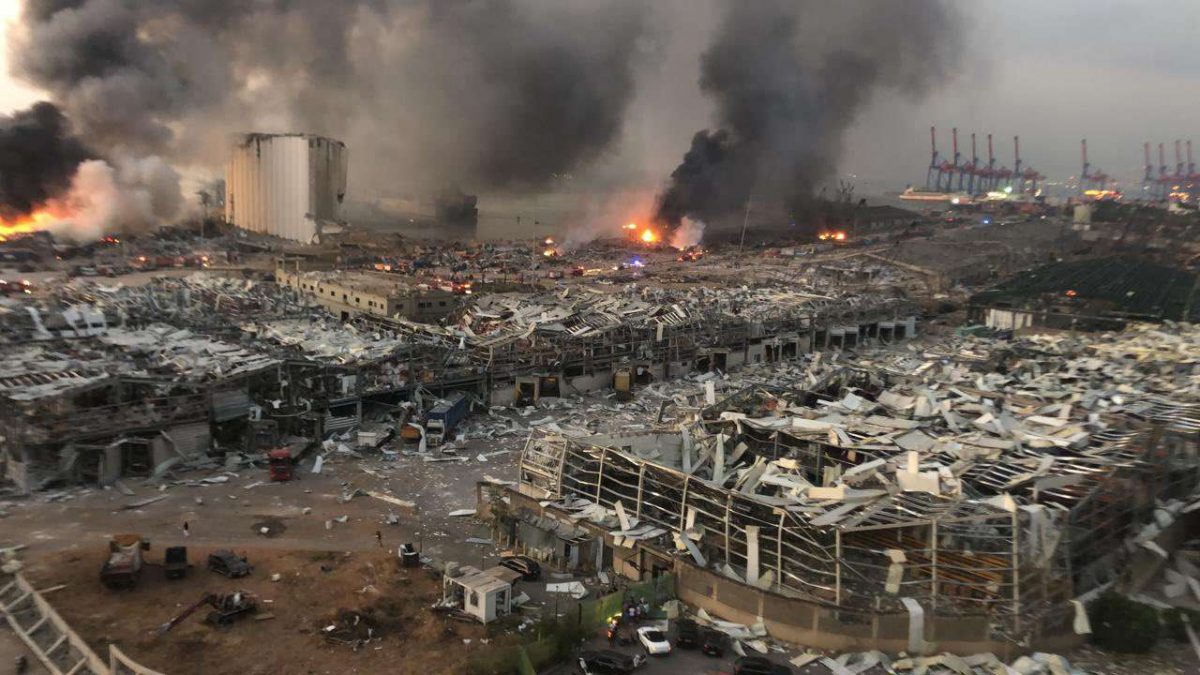The catastrophic blast in Beirut presents a massive challenge to the international community at an unprecedented time of crisis and a test to the UK’s willingness and ability to contribute and integrate effectively post-Brexit.
The extent of the blast, whatever detail may lie behind its origin, has done indiscriminate damage way beyond any reasonable expectation and far beyond the collateral damage of many a ‘shock and awe’ military strike. Lebanon is left without food supplies, without import infrastructure and with medical services both overwhelmed and substantially damaged. Lebanon has been either a failing state, a failed state or a state recovering from failure for as most of my lifetime. A pawn in the international shenanigans of a troubled region, its people have more than their fair share of destruction and somehow keep dragging themselves back from seeming hopelessness. But even at the height of the brutal civil war the damage to Beirut still allowed routes for supply – not least because the multiple combatants needed their own supply routes.
What people in Lebanon now need is not mindless speculation by angry presidents with a smartphone or sad conspiracy nuts confirming their prejudices, it is simply aid. Faced with an already desperate crisis inflicted by Covid-19 and a ruined national infrastructure 6.9 million people (the equivalent of Bulgaria in European terms) face starvation, no functional healthcare and an again broken state in need of fundamental change.
The response of international aid organisations will be vital, but it a situation that will require international action and co-operation at governmental level. The rantings of the increasingly unwell Donald Trump aside, multinational institutions from the UN to the WHO and even the EU have been consistently undermined and maligned in recent years, yet their co-ordinated action is once again needed. We cannot escape the fact that it is only concerted multilateral co-operation that can realistically affect humanitarian disasters. The failures of the Lebanese state, not entirely of its own making, are no excuse for inaction – those failing have been the curse of the Lebanese people, rather than their creation.
For the UK’s international efforts this is, perhaps, the ideal opportunity to demonstrate its ability to contribute – despite everything we are still a wealthy country. Perhaps the Government will use the opportunity to demonstrate how effectively it can engage with multilateral bodies or even with our neighbours. The EU was swift to offer messages of solidarity, it is highly likely to commit aid and though its efforts are far from perfect, requiring greater financial flexibility to facilitate more rapid response and better democratic scrutiny of outcomes, the intent is good.
In the days of the UK’s EU membership it was regarded as a key member on such issues. The now abolished Department for International Development was well respected and made a real contribution to EU efforts. Even when, in the case of Hurricane Irma in 2017, the UK, France and the Netherlands directed aid at their own dependencies their contributions and work was coordinated with the overall effort of the EU to deliver a better overall effort.
Will the UK bury its differences for the common good and work with its neighbours on this? The UK had made an initial pledge worth £5m toward relief efforts but how will it co-ordinate with others? If it doesn’t co-ordinate its efforts how will it avoid duplication? Or will it compound its isolation? Time will tell, let’s hope the UK Government’s actions on first big post-Brexit, post-DFID challenge on humanitarian aid are properly scrutinised.

